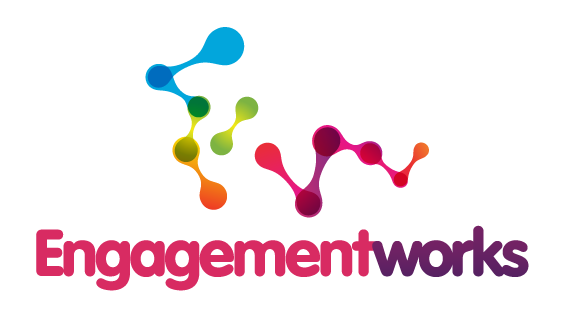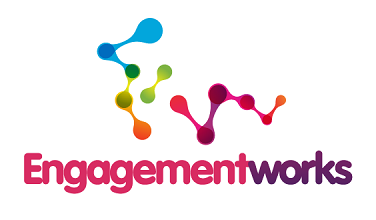Social Licence to Operate. SLO. The latest buzz phrase and three-letter acronym doing the rounds and one that seems to be capturing the attention of senior managers in diverse enterprises. So what’s it all about? Do organisations really need to gain the approval of communities in order to operate?
“Social licence” is another way of describing the currency of reputation or goodwill. Some people may refer to this currency as Brownie Points™. While that description may be a bit glib, it’s a fair simplification of what’s an operationally complex issue. Complex because embracing it and doing it well cuts to the core of an organisation’s mind-set and culture and underpins that organisation’s brand.
An organisation accumulates goodwill by conducting its affairs in a manner that either meets with the approval of communities or doesn’t annoy them. This currency takes a long time – perhaps years – to accumulate but can be lost in a moment. Organisations that understand this value proposition and its complexities and are still prepared to invest are the ones who will do it well.
There are many examples of organisations that have damaged their social licence to operate. On this list are multinationals who manufacture their products in countries that allow child labour, manufacturers who include non-sustainable palm oil in their foodstuffs, those who trade in products sourced from endangered species, or airlines whose planes crash because of deficient maintenance and staff training.
These are extreme examples selected to make a point. Not all social licence-related issues involve breaking the law. A truth for any individual or organisation is that perception is reality. That perception doesn’t have to be underpinned by facts or sound science but if it’s widely held, then it needs to be understood and respected.
Another reality is that all organisations require a social licence to operate, whether or not they acknowledge that. In some cases the minimum standards necessary are set by regulations administered by government agencies or councils. In these cases the authority needed is provided by proxy from communities through government.
A social licence is based on trust, respect and mutual understanding. These are products of a commitment to partnership, a commitment which for many organisations is, regrettably, undertaken because they have to, thanks to regulations and statutory requirements, rather than because they want to. Such organisations may have no real interest in things like social licences to operate.
Organisations that do care about their social licence to operate generally seek ways to connect with their customers, clients and communities that add value to both sides of the relationship. They probably have an engagement policy, engagement strategies and plans for their major products, projects and processes. They’re probably no strangers to market research, focus groups, online panels, and community-led sponsorship, to name a few tools. There’s also a high probability that they’ve been actively engaging for a while. They will also understand what investing in their brand really means – that this investment involves more than a nifty logo and jazzy advertising.
Organisations new to this world of engagement and consequent reputation building – social licence to operate – may feel a bit confused about how to get started. They may also be organisations that have been around for a while but are feeling threatened or exposed by changes to what their clients, customers or communities are thinking and doing.
They may also be looking for an off-the-shelf solution that can be quickly put to work.
While there are off-the-shelf remedies, they’re unlikely to work in a believable and trust-building way unless the organisation concerned with delivering those is genuinely committed. Remember, communities have highly tuned Bullshit Receptors™ and can spot disingenuous operators in a heartbeat.
The choice of tools and techniques for community engagement and reputation building has to align appropriately with an organisation’s vision and values. If it doesn’t, then it is unlikely that employees of that organisation will make the right connections and any investment made could be money wasted.
But the first step has to be at an organisation’s top table. The board of directors, elected councillors, CEOs and their direct reports. The mind-set of these people is crucial for success. No well-intentioned, visionary and workaholic operational manager will succeed in this space unless they have the guidance, leadership and backing of those at the top of the organisation.
These leaders need to accept that their organisation will operate best with societal approval and all of the reputation and risk issues associated with gaining or retaining that.
So do organisations really need to gain the approval of communities in order to operate? If they want to operate successfully, then yes they do.
Can Engagementworks help organisations who want to better understand what’s possible in this world of social licences to operate? Yes we can. And we’re happy to discuss options and choices.
“Social licence” is another way of describing the currency of reputation or goodwill. Some people may refer to this currency as Brownie Points™. While that description may be a bit glib, it’s a fair simplification of what’s an operationally complex issue. Complex because embracing it and doing it well cuts to the core of an organisation’s mind-set and culture and underpins that organisation’s brand.
An organisation accumulates goodwill by conducting its affairs in a manner that either meets with the approval of communities or doesn’t annoy them. This currency takes a long time – perhaps years – to accumulate but can be lost in a moment. Organisations that understand this value proposition and its complexities and are still prepared to invest are the ones who will do it well.
There are many examples of organisations that have damaged their social licence to operate. On this list are multinationals who manufacture their products in countries that allow child labour, manufacturers who include non-sustainable palm oil in their foodstuffs, those who trade in products sourced from endangered species, or airlines whose planes crash because of deficient maintenance and staff training.
These are extreme examples selected to make a point. Not all social licence-related issues involve breaking the law. A truth for any individual or organisation is that perception is reality. That perception doesn’t have to be underpinned by facts or sound science but if it’s widely held, then it needs to be understood and respected.
Another reality is that all organisations require a social licence to operate, whether or not they acknowledge that. In some cases the minimum standards necessary are set by regulations administered by government agencies or councils. In these cases the authority needed is provided by proxy from communities through government.
A social licence is based on trust, respect and mutual understanding. These are products of a commitment to partnership, a commitment which for many organisations is, regrettably, undertaken because they have to, thanks to regulations and statutory requirements, rather than because they want to. Such organisations may have no real interest in things like social licences to operate.
Organisations that do care about their social licence to operate generally seek ways to connect with their customers, clients and communities that add value to both sides of the relationship. They probably have an engagement policy, engagement strategies and plans for their major products, projects and processes. They’re probably no strangers to market research, focus groups, online panels, and community-led sponsorship, to name a few tools. There’s also a high probability that they’ve been actively engaging for a while. They will also understand what investing in their brand really means – that this investment involves more than a nifty logo and jazzy advertising.
Organisations new to this world of engagement and consequent reputation building – social licence to operate – may feel a bit confused about how to get started. They may also be organisations that have been around for a while but are feeling threatened or exposed by changes to what their clients, customers or communities are thinking and doing.
They may also be looking for an off-the-shelf solution that can be quickly put to work.
While there are off-the-shelf remedies, they’re unlikely to work in a believable and trust-building way unless the organisation concerned with delivering those is genuinely committed. Remember, communities have highly tuned Bullshit Receptors™ and can spot disingenuous operators in a heartbeat.
The choice of tools and techniques for community engagement and reputation building has to align appropriately with an organisation’s vision and values. If it doesn’t, then it is unlikely that employees of that organisation will make the right connections and any investment made could be money wasted.
But the first step has to be at an organisation’s top table. The board of directors, elected councillors, CEOs and their direct reports. The mind-set of these people is crucial for success. No well-intentioned, visionary and workaholic operational manager will succeed in this space unless they have the guidance, leadership and backing of those at the top of the organisation.
These leaders need to accept that their organisation will operate best with societal approval and all of the reputation and risk issues associated with gaining or retaining that.
So do organisations really need to gain the approval of communities in order to operate? If they want to operate successfully, then yes they do.
Can Engagementworks help organisations who want to better understand what’s possible in this world of social licences to operate? Yes we can. And we’re happy to discuss options and choices.



 RSS Feed
RSS Feed
